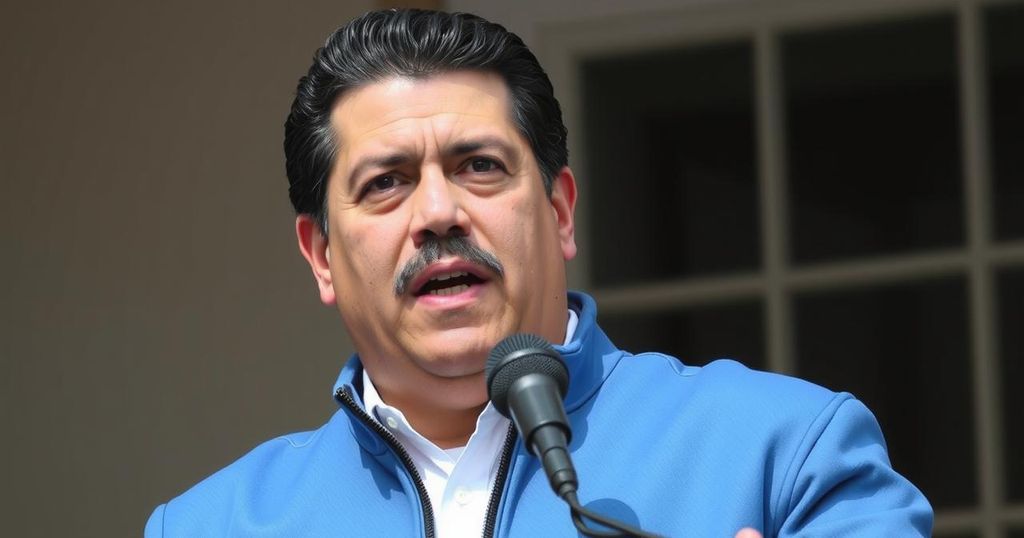Venezuelan President Nicolás Maduro was sworn in for a third term amidst claims of election fraud and international condemnation. His inauguration was marred by protests and accusations against the U.S. and opposition figures. The opposition reported that Edmundo González likely won the election but faced suppression, leading to heightened tensions and international sanctions against the Maduro government.
On Friday, Venezuelan President Nicolás Maduro was inaugurated for his third six-year term amidst protests and substantial evidence suggesting he lost the recent election to his opponent, Edmundo González. The swearing-in ceremony took place at a heavily secured legislative palace, where Maduro delivered a confrontational speech, accusing the opposition of attempting to disrupt proceedings and external powers, particularly the United States, of attacking Venezuela. He characterized the situation as a Venezuelan victory for managing to proceed with the inauguration despite opposition protests.
Evidence compiled by the opposition, including tallies from the majority of voting machines, indicated that González had potentially received twice as many votes as Maduro. The Carter Center, a U.S.-based election observer group, validated the opposition’s findings, although the Maduro government declared the elections legitimate without providing detailed vote counts. Following the election, international sanctions were imposed by the European Union and the United States, targeting various Venezuelan officials as part of a broader condemnation of the government’s handling of the election and suppression of dissent.
Opposition leader María Corina Machado, who has been barred from running for office, faced violent detainment during protests against Maduro’s inauguration, eliciting international outrage and calls for her release from government suppression. As fears of electoral fraud loomed, widespread protests broke out, leading to over 2,000 arrests and numerous fatalities, further deepening the crisis in the country. Although Maduro’s supporters celebrated his inauguration, the underlying conflict continues to jeopardize Venezuela’s democratic integrity.
The political landscape in Venezuela has been characterized by turmoil and allegations of authoritarianism under President Nicolás Maduro. His tenure has seen escalating repression against opposition voices, particularly following elections that many claim lack legitimacy. The recent election on July 28 ignited protests due to claims of electoral fraud, with evidence suggesting that Maduro’s main opponent, Edmundo González, received significantly more votes. Amidst this backdrop, international condemnation and sanctions have been levied against the Venezuelan government, intensifying the already fraught political situation.
The inauguration of Nicolás Maduro for a third term highlights the ongoing political crisis in Venezuela, characterized by allegations of electoral misconduct and severe repression of opposition figures. Despite international condemnation and widespread protests, Maduro’s government continues to assert its legitimacy, claiming victory amid a backdrop of protests and tightening grip on dissent. As the conflict unfolds, the safety and rights of opposition leaders and supporters remain pressing issues amid accusations of the government’s authoritarian measures.
Original Source: gvwire.com






